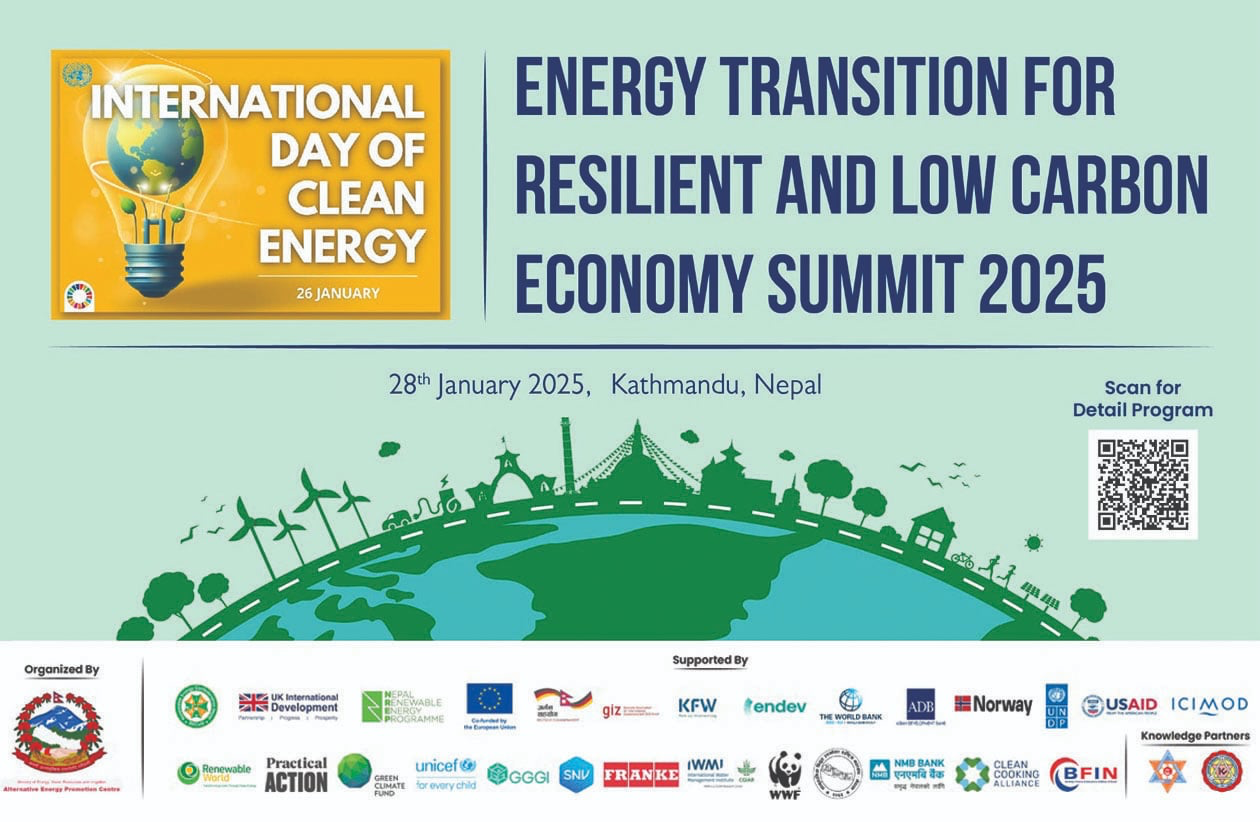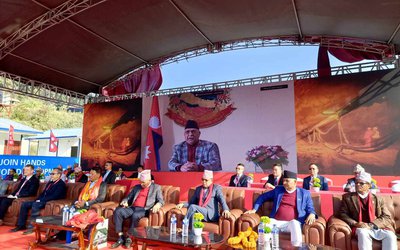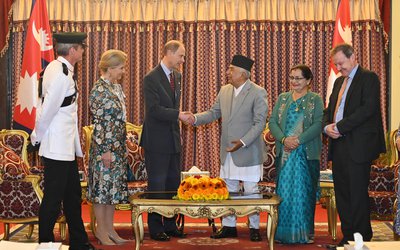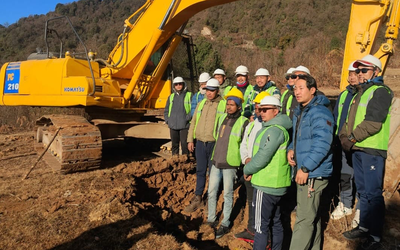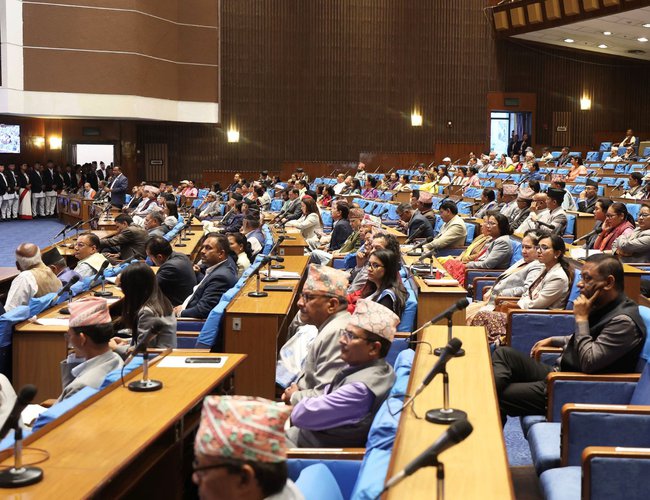
The House of Representatives on Wednesday passed the Transitional Justice Bill, also known as the Investigation, Truth and Reconciliation Commission (Third) Amendment Bill, 2024, with the majority.
The Bill, proposed by Minister of Law, Justice, and Parliamentary Affairs Ajay Kumar Chaurasia, was approved by all lawmakers, except Prem Suwal of the Majdur Kishan Party, present in the House.
Minister Chaurasia introduced the Bill aimed at amending the existing Disappeared Persons Inquiry, Truth and Reconciliation Commission Act, 2014 (TRC).
This bill, registered in the House of Representatives on February 25, 2022, seeks to address and resolve longstanding issues related to transitional justice. Before its passage, the Law, Justice, and Human Rights Committee of the House of Representatives reviewed and approved the Bill.
The passage of the Bill is a milestone in concluding the peace process as per the Comprehensive Peace Accord (CPA) inked in 2006.
Prime Minister KP Sharma Oli expressed his satisfaction with the recent agreement on the transitional justice law, calling it a significant achievement in the peace process. Speaking during a House of Representatives meeting today, PM Oli highlighted that the agreement reached 18 years after the signing of the CPA marks a pivotal moment in Nepal's journey toward reconciliation.
“It’s a matter of happiness for those who have worked tirelessly for peace. Our peace process, which began with a conflict and has evolved, is now seen as a model for the world. We’ve successfully integrated the conflict into the mainstream and uplifted those previously marginalised by it,” he said.
The Prime Minister assured that the government was committed to facilitating the implementation of these laws, which have received consensus from the political working group and parliamentary committees.
“We have now taken the final steps towards establishing truth-telling, reconciliation, and addressing cases of disappeared persons,” he said. “This achievement is a testament to our dedication and could serve as a global example.”
PM Oli acknowledged that although significant advancements have been made in peace management, critical issues related to truth and reconciliation, as well as the investigation of missing persons, remained unresolved.
Addressing concerns about potential amendments to the constitution, PM Oli made it clear that any changes must align with the principles of federalism and republicanism. “We cannot amend the constitution in a way that undermines its core values. Our fight for democracy was hard-fought, and we remain committed to its principles,” he said.
Reflecting on his 2018 speech at the United Nations General Assembly, PM Oli recalled his optimism about a swift resolution. "We have adhered to a homegrown approach, and now, with consensus from all parties, we are moving towards an exemplary resolution of our conflict," he remarked.
PM Oli also paid tribute to the sacrifices made in the struggle for democracy, underscoring the need to honour these contributions by upholding democratic principles. "Many have given their lives for this cause, and we must honour their legacy," he said.
Prime Minister Oli called on members of the House to lead by example in upholding social values and guiding society. He emphasised that passing the necessary laws and addressing transitional justice issues would be crucial in building a prosperous and just society for all Nepalis. "By addressing these issues, we will move towards a more prosperous and just society," he said.
Similarly, former Prime Minister and President of the Nepali Congress, Sher Bahadur Deuba, welcomed the agreement on transitional justice as a historic milestone in Nepal's political history. Speaking at the House of Representatives meeting, Deuba highlighted the significance of achieving consensus among all political forces and stakeholders.
“We have completed the remaining chapters of the peace process through a credible process. Historically, all political powers and stakeholders have come together with unanimous consent. This is a moment of great achievement,” he said.
He underscored the necessity of establishing a competent commission and enacting appropriate laws to address the issues of transitional justice, which he identified as the final piece of the peace process. Deuba urged all parties to focus on the effective selection and functioning of the Commission of Inquiry on Disappeared Persons and the Truth and Reconciliation Commission. “Rather than casting suspicion or accusations, we need to ensure the Commissions’ effectiveness. The smooth completion of this process hinges on it,” said Deuba. Highlighting the unity of political parties in times of national challenge, Deuba expressed confidence that this collective effort would demonstrate Nepal’s capability to tackle complex issues. “The national consensus on the Transitional Justice Bill sends a strong message that Nepali political parties can achieve significant milestones,” he said.
Deuba expressed hope that once enacted, the Bill would provide long-awaited justice to conflict-affected individuals and their families which have endured prolonged suffering due to inadequate compensation.
Likewise, Chairman of CPN (Unified Socialist) Madhav Kumar Nepal disclosed his ongoing dialogue with Maoist Centre Chairman Pushpa Kamal Dahal 'Prachanda' on war-related issues since 1997. During a Parliament discussion on the TRC Bill, Nepal recalled their meetings in Patna, New Delhi and Gorakhpur between 1999 and 2001. He praised Prachanda's commitment to fairness and disapproved attempts to blame India for the 12-point agreement. Nepal called for addressing over 63,000 serious crime cases and delivering justice. He rejected moves toward a two-party system, advocating for Nepal’s multi-party democracy and urging all political parties to unite to complete the peace process.
Rabi Lamichhane, Chairman of the Rastriya Swatantra Party, stressed the need for vigilance in implementing the transitional justice law. Discussing the provisions in the Bill, Lamichhane highlighted positive progress in the peace process but noted that laws alone cannot ensure justice, a clear and impartial structure is essential.
Likewise, Rastriya Prajatantra Party (RPP) President Rajendra Prasad Lingden urged the Parliament to quickly pass the TRC (Third Amendment) Bill, 2022, to ensure justice for victims. He stressed the need for effective punishment to perpetrators and vowed to monitor the implementation closely. Lingden also highlighted the plight of displaced army families and stressed the importance of not repeating past conflicts.
The Bill now needs approval from the Upper House.
- US And China Spar Over Tariffs
- Feb 05, 2025
- Trump Meets Netanyahu at White House
- Feb 05, 2025
- NA Chair Requests Israel to take initiative for the release of Bipin Joshi From Hamas
- Feb 04, 2025
- US Reaches Tariff Deals With Canada, Mexico
- Feb 04, 2025
- Canada, Mexico, China react to US tariff announcement
- Feb 03, 2025
